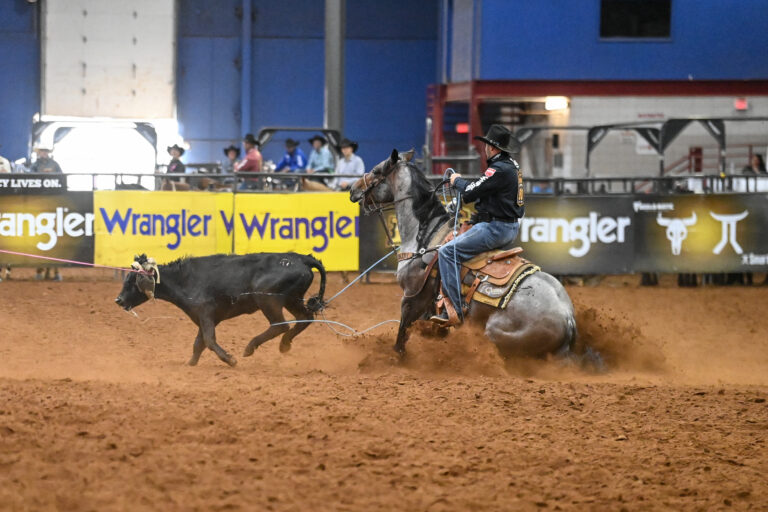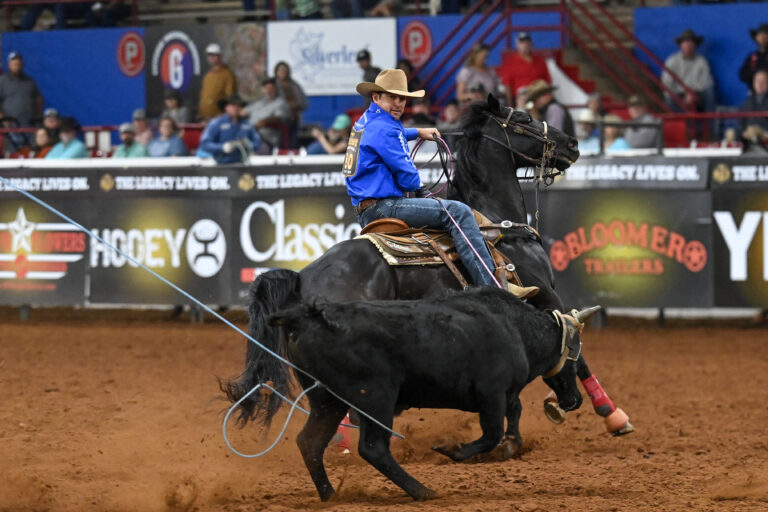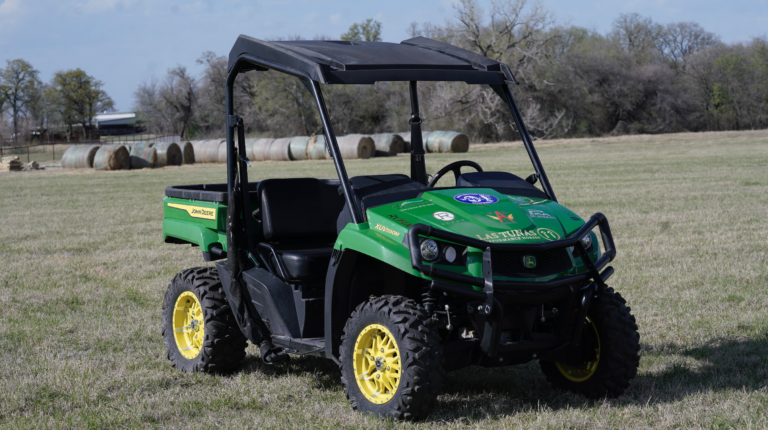Locales
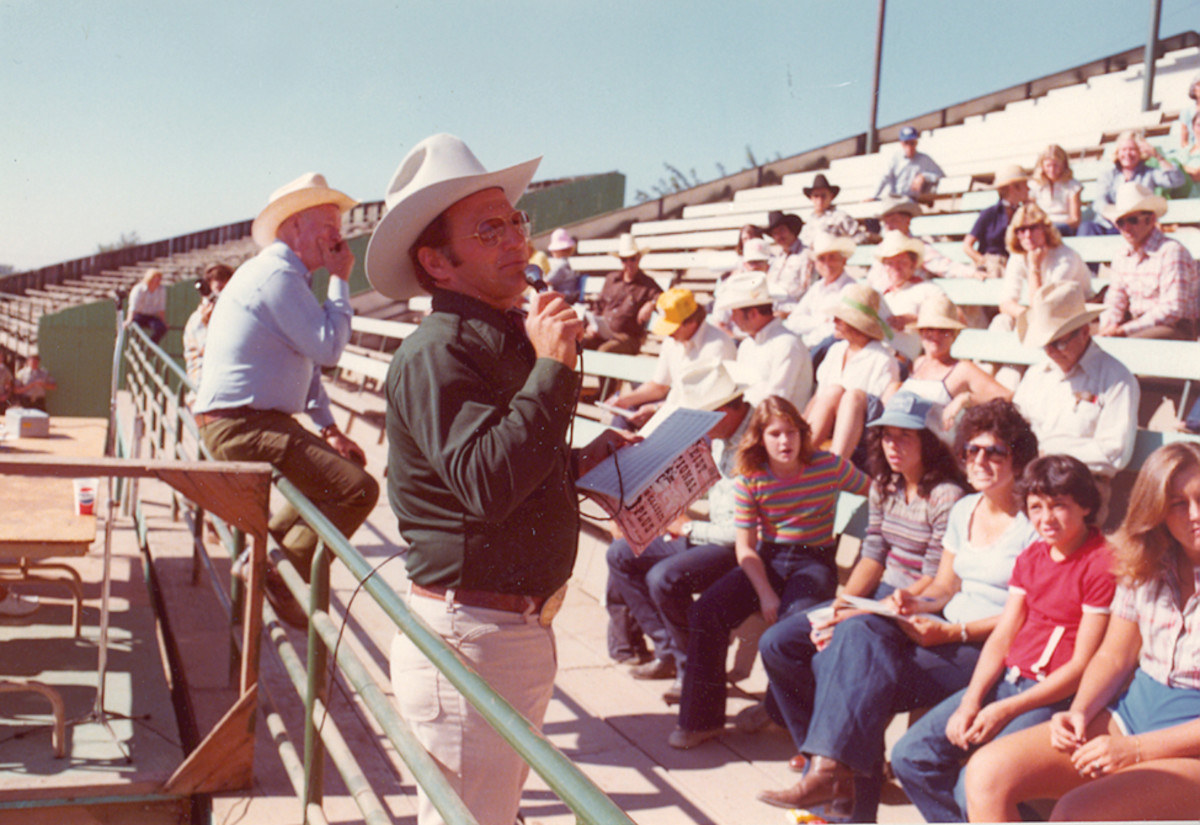
The Bob Feist Invitational began in Chowchilla in 1977, moved to Las Vegas in 1981, Denton in 1982, took the year off in 1983 until finding its home in Reno in 1984. Reno first hosted the event in its outdoor arena, but the event moved to its current indoor home in 1989.
Back-to-Back

Charles Pogue and Britt Bockius won the BFI back-to-back in 1999 and 2000, while Speed Williams and Rich Skelton accomplished the same feet in 2001 and 2002. (They had also won it in 1998.) Kory Koontz won the event in 1995 and 1996, first with Rube Woolsey and then with Matt Tyler. Tyler had already won the event in 1993 with Steve Northcott.
Oldest Winner
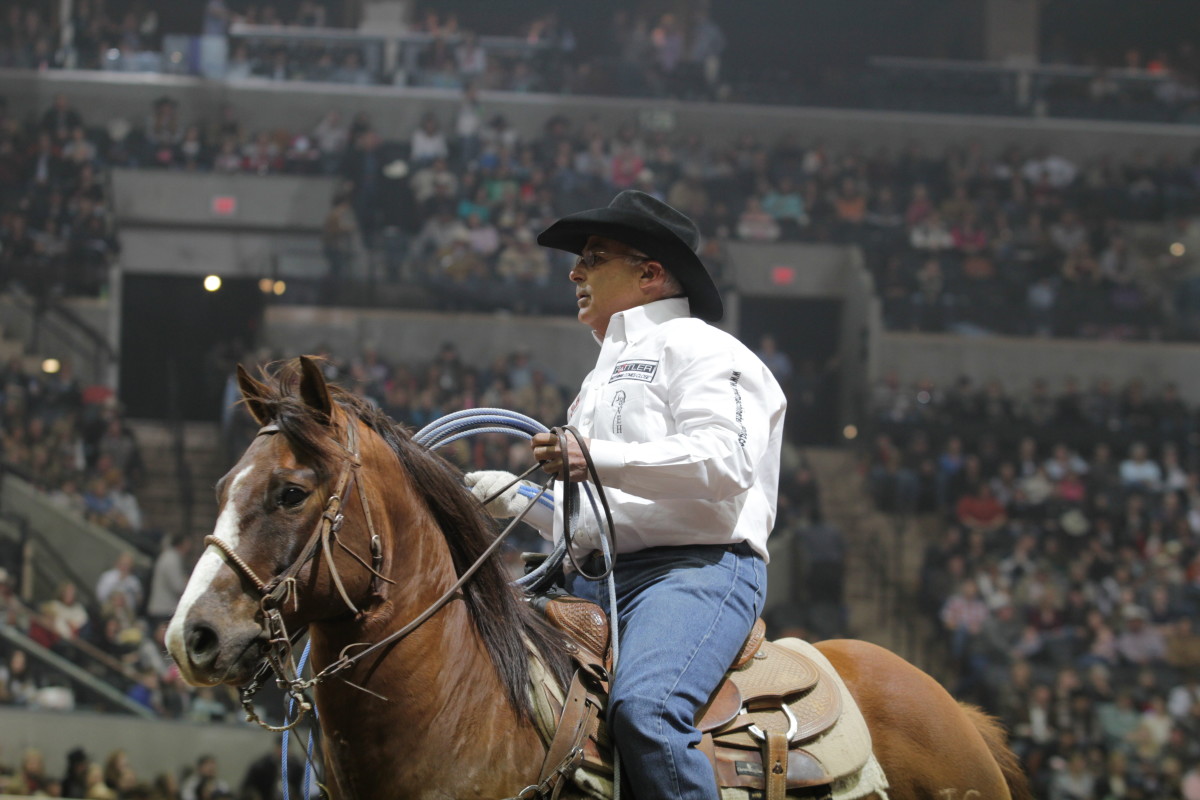
Walt Woodard, who will heel for Jake Orman at the 2019 edition of the Feist, was 52 when he won the event in 2008 with Clay Tryan with a time of 47.83 seconds on six head.
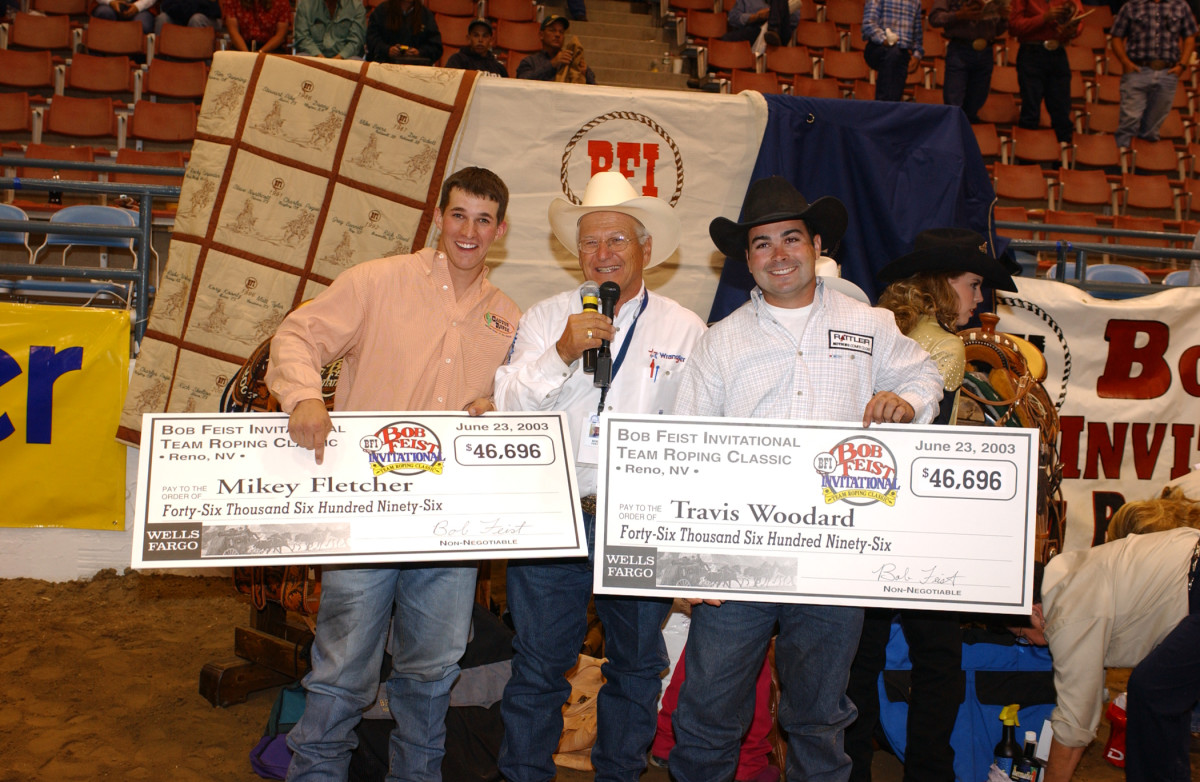
Youngest Winner
Travis Woodard was just 19 when he won the BFI in 2003, heeling for Mickey Fletcher, with a time of 45.21 seconds on six head. It was the 11th fastest aggregate time in BFI history.
35
The footage of the BFI score in Chowchilla, California, and Denton, Texas. The score was 25 feet in Las Vegas in 1981 and has been an 18-foot score since moving to Reno in 1984.
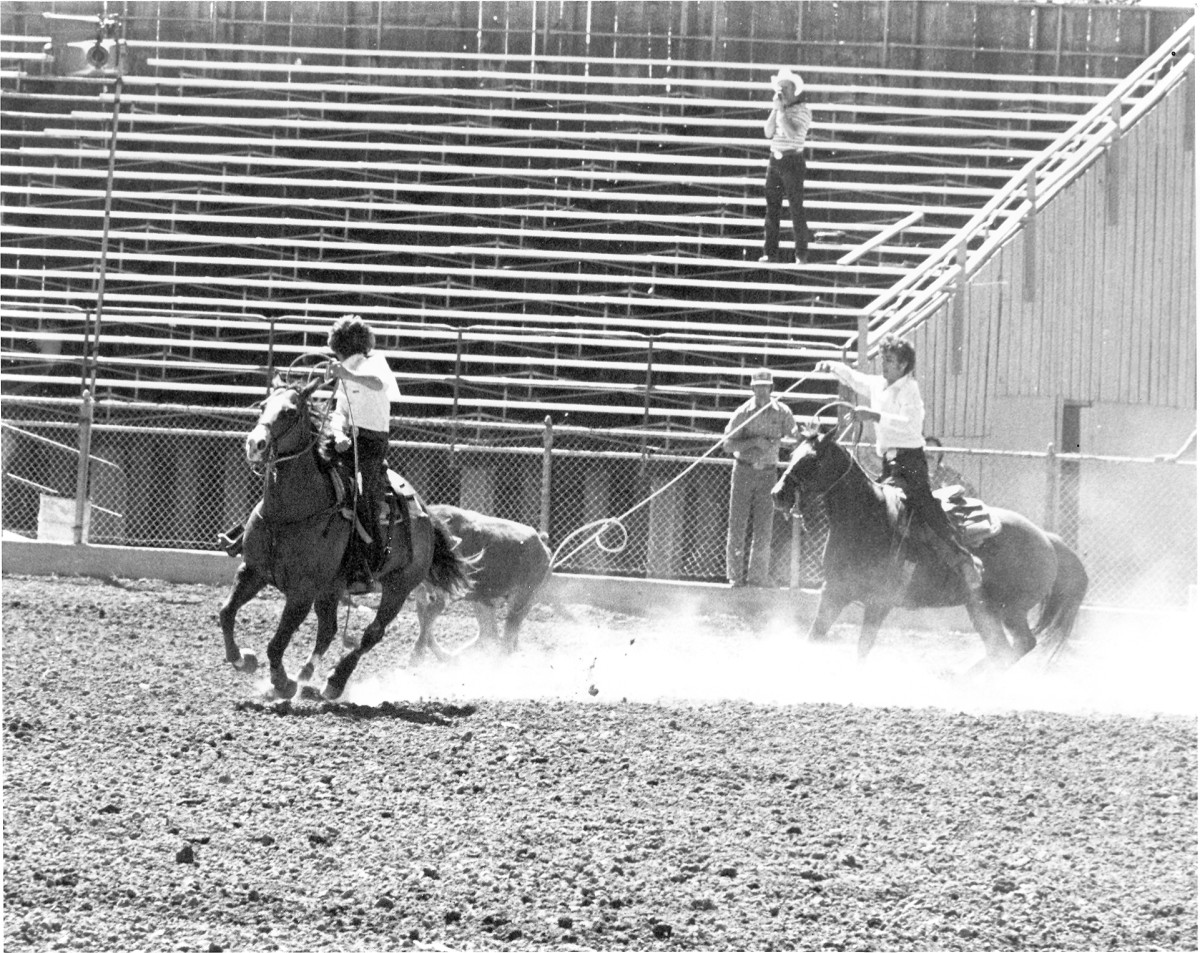
Mare Power
Brian Burrows and Allen Bach won the Feist on a team of mares in 1979, when Chowchilla, California, hosted the event. They rode the first and only team of mares to win a BFI title, stopping the clock in 82.67 seconds on six head.
[Read More: Mare Power: Greatest Mares in the Team Roping Industry]
$500
Beverly Robbins wasn’t the first woman to rope at the BFI, but she was the first to cash a check. She won $500 with Knoxville, Tennessee’s Stephen Britnell, when they roped there in 1998.
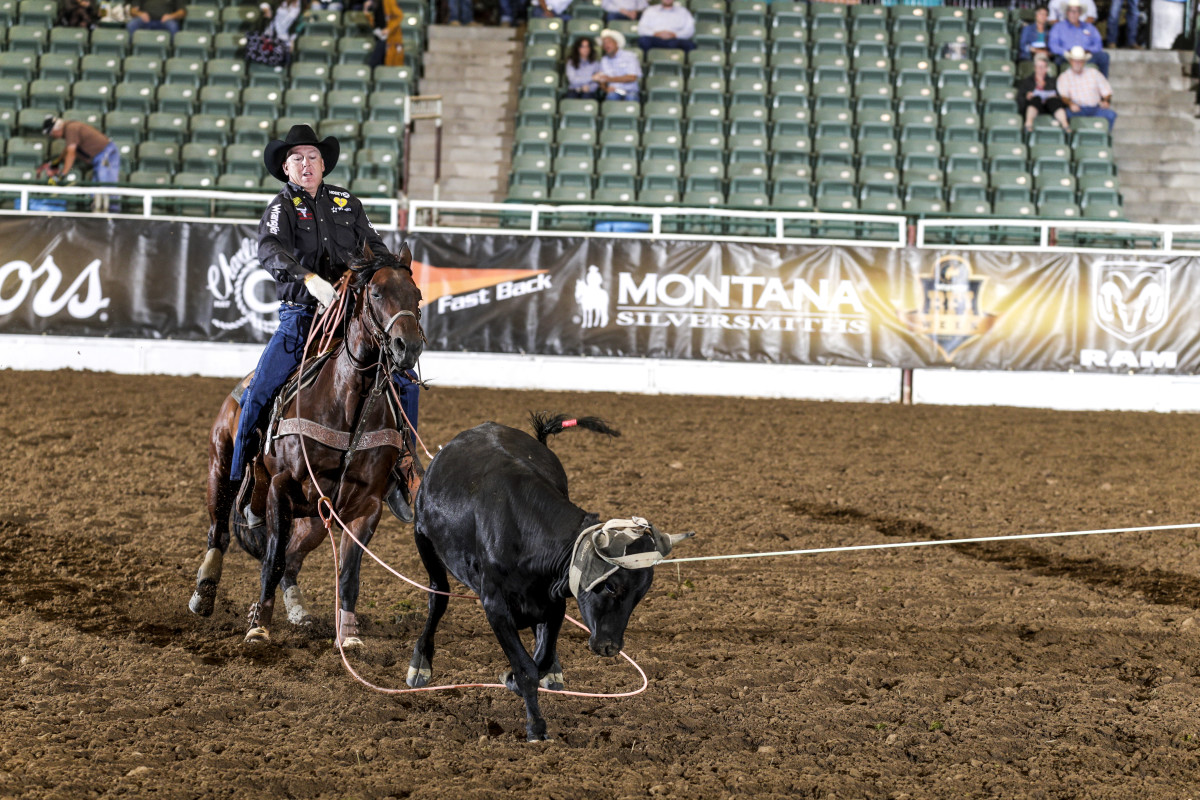
Switchenders
Bret Beach, Walt Rodman, J.D. Yates, Trevor Brazile, Tyler Magnus, Brock Hanson, Daniel Green, Rhen Richard and Mark Simon all swapped ends at one point in their careers at the Feist.
First Female
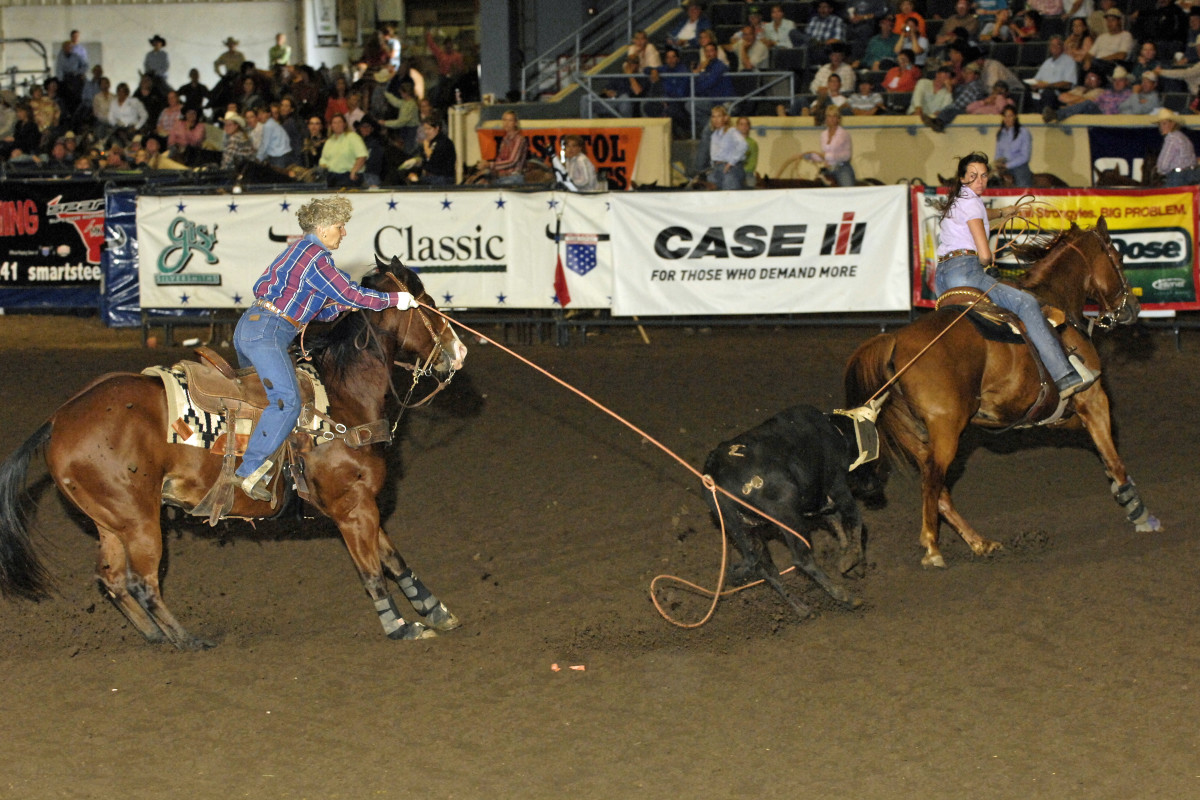
Otherwise known as Speed’s mom, Williams heeled in 1986 for Guy Motsinger. She was the first woman to ever rope at the event nine years after its inception.
3
The number of BFI go-round fast-times Tyler Magnus and Clay O’Brien Cooper have each won. They made the fastest run of the 2000 BFI together with a 5.27-second run, while Magnus heeled for Tee Woolman to set the pace with a 5.18 a year earlier. In 2003, Magnus headed for Jacky Stephenson when they made a 5.09-second run to win the fast-time. Cooper made his fastest runs at the event in 1989 with Jake Barnes, with Magnus in 2000 and with Chad Masters in 2012. Rickey Green also has three fast-times: An 8.45-second run with Joe Murray in 1977, a 7.56-second run with Bob McClelland in 1979 and an 8.31-second run with Julio Moreno in 1982.
[Listen: The Score Season 1, Episode 7 with BFI Champions Chris Francis and Cade Passig]
9.5
The newest addition to the BFI Week roster, the #9.5 Over 40 will pay $100,000 to first place (based on 125 entries). The new roping allows the older ropers a chance to compete against their peers in a format where they don’t have to rope against the kids, says BFI owner Daren Peterson.
[Read More: Clay Tryan’s BFI Winning Edge]
9.23
The fastest time of the 1978 BFI, turned in by Jim Petersen and John Rodriguez on Chowchilla’s massive steers and 35-foot score. It’s the slowest fast-time in BFI history, but considering the 35-foot score and 550-pound steers, it’s still quite impressive.
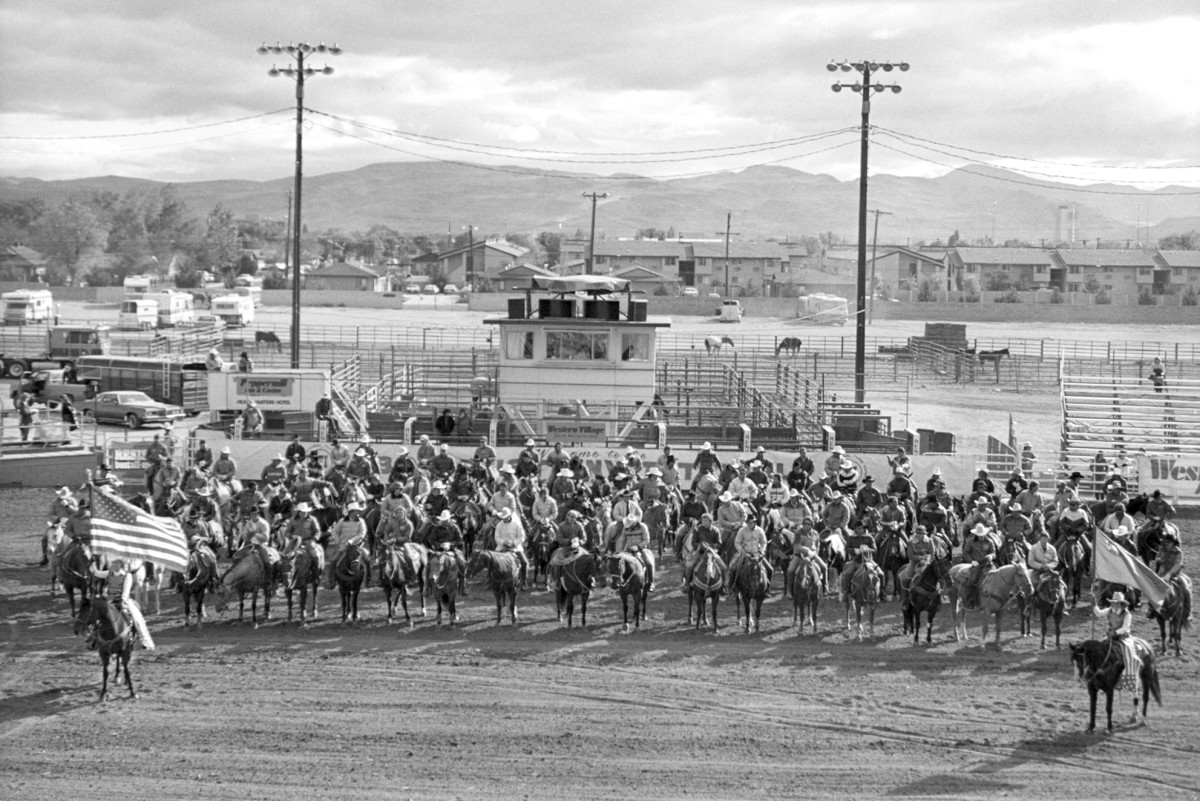
$11,225,207.15
Total payout of the BFI since its inception in 1977.
*For more on theseand other BFI storylines,visit teamropingjournal.com and bfiweek.com!





